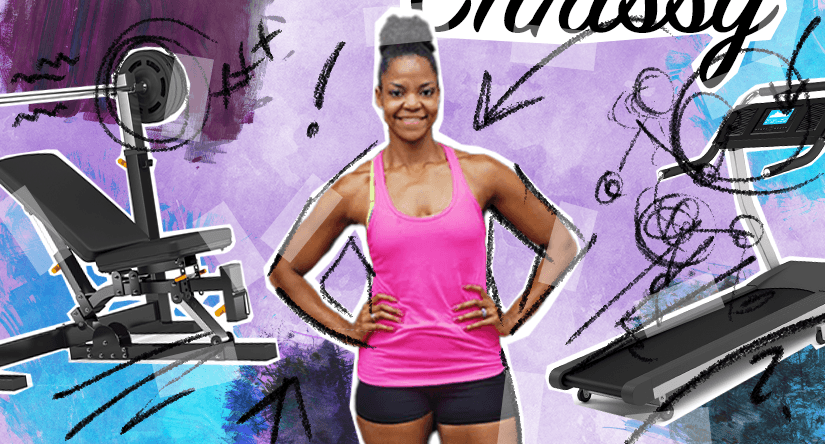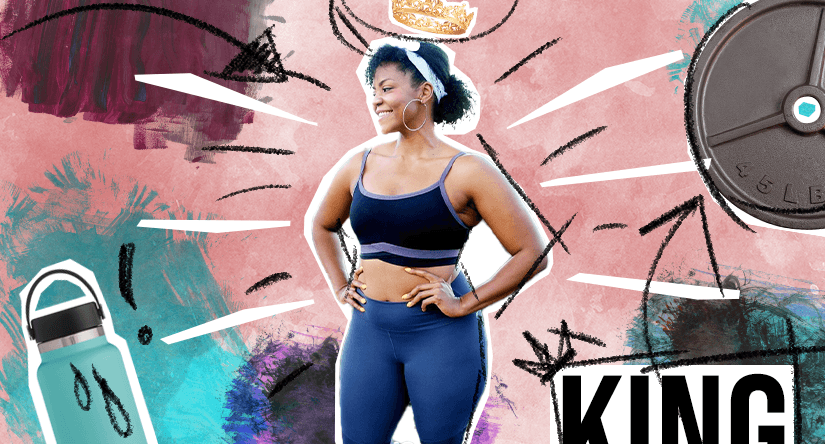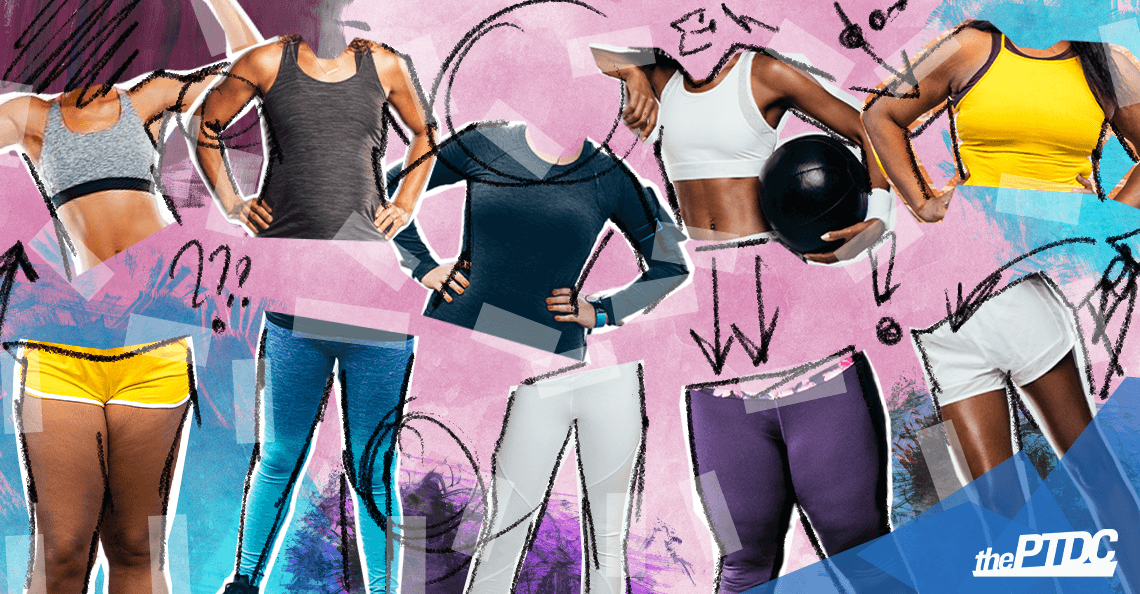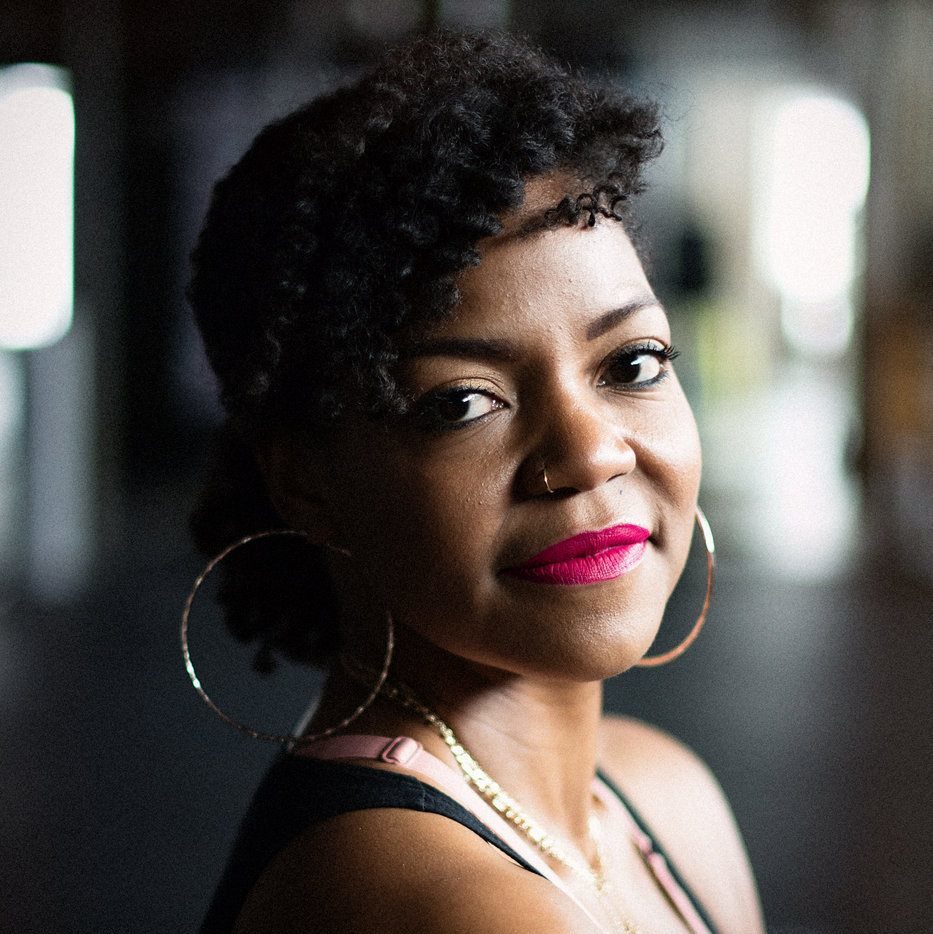Do you look like a trainer?
Before you answer, think about how you reacted to that question.
Proudly? Defensively? Hesitantly?
Maybe it’s a stupid question—or even a toxic one. Maybe it shouldn’t matter.
Too often in the world of personal training, it matters way too much.
There have been countless studies, articles, blog posts, podcasts, and even TED Talks about body image and body positivity. The trend is encouraging—toward health and acceptance.
We personal trainers are hyper-aware of it all, thinking both about our clients and ourselves, mostly for good but sometimes not.
Let’s face it …
We trainers think about our bodies more than most people. So we should think smart.
Our attitude is crucial to the mission of helping people live healthy, happy lives.
And not coincidentally, it can also help us live healthier, happier lives—and boost your training business, by the way.
Below I’ll lay out some strategies I’ve used that might help you.
But first, who am I?
I’m a tall (5-foot-11), strong Black woman who’s been a trainer for five years. Those first years were at night, after my day job at the Department of Veterans Affairs in Milwaukee, before I went full time.
Now I’m in Brooklyn, New York, mostly doing consulting work for companies big (Google, Nike) and small (e.g., a yoga studio), writing for magazines (Self, Shape), and training a handful of individual clients. I even popped up on the Today Show!
This segment on the Today Show features the author, who talks about being Black and body positive in an industry that trends white and thin.
--
But my real story begins back in Wisconsin, growing up big but weak, not much of an athlete. As a young woman, I joined a gym to lose weight.
I was a typical client, reluctant to return after a painful first session. (But I’d paid for 12, so back I went.)
I didn’t understand that strength training could lead to weight loss and a bunch of other benefits. Classic newbie.
Later, when I saw women powerlifting, I thought, Wow, cool. When I tried it, it was love at first lift. I was feeling better about my body and about working out.
I got really strong and competed in powerlifting for several years. The gym wasn’t for getting skinny anymore, it was for having fun. Pure enjoyment.
I left my office job and became a trainer. I wanted to help others fall in love with being strong.
Not only was my body capable of things I’d never dreamed, it looked drastically different.
I looked like a trainer.
And yet, I was still hyper-focused on weight. My relationship with food was negative.
Measuring macros obsessively. Didn’t like to go out with my friends. (And for my friends, I was no fun to be around.)
Dessert? No way! I wanted to maintain the body I’d achieved.
I was miserable.
“This is not good,” I told myself at rock bottom.
For me, it marked the start of a return to normalcy. To a sense of body liberation.
To true health. To being whole. To joy!
If you’re unhappy, obsessed, feeling trapped, here are some things to tell yourself. They helped me.

The author in her hard-core trainer days.
Personal Trainers: 7 Things You Should Tell Yourself to Feel More Confident in Your Looks
I want to be healthy
I got into fitness because I wanted to be skinny, sure. But I shifted my thinking to being healthy, not just lean. I want to feel nourished and energized.
Looking in the mirror, checking my weight on the scale—those habits were not going to help me feel that way.
I wanted to focus on movement for joy. Focus on nourishing my body, and whatever happens to my body, happens.
My body doesn’t look like it did when I was a full-time trainer, measuring macros and being miserable. I’m not the “before” and I’m not the “after.” I’ve settled in the middle and I love it. I still look athletic, but people don’t say, “Wow, you look like a trainer!”
But my body can still do amazing things!
I have a healthy relationship with exercise and food, and for me, this is the ideal way to live.
I can rediscover life
The obsessive me never missed a workout. If I had another obligation, I shuffled my schedule to get my workout in.
This made vacations, weekends—just an evening out—kind of stressful instead of relaxing. I know I was annoying to people around me.
I thought: I could live like this for the rest of my life, but I’m not enjoying life!
Or I could imagine what a healthy relationship with food and exercise would look like.
Here’s some dark humor that might help: At your funeral, nobody’s going to say, “She was in such great shape!”
That’s not the point of life. I want to have rich experiences with my friends and my family and enjoy my limited time here.
I literally conceptualized how to take that journey.
It started with baby steps. I stopped counting macros. You can roughly estimate that in your head.
I added little formerly forbidden things, like cream in my coffee. It made a difference—it didn’t make me heavier, it made me happier!
Instead of six workouts per week, I tried five. And guess what? I’m still okay.
I can tap into renewed energy
You know what’s really exhausting? I mean, besides a bootcamp workout.
I didn’t realize until I stopped maintaining my “trainer” look how much energy it took. Not the effort in the gym—that’s obvious—but the constantly draining mental effort.
I spent so much time worrying about my food and maintaining my look that I had zero creative energy left over for other things. I had no brainpower left.
Now that I’ve dialed down the obsession, I’m able to do so much more. I shifted from primarily training to writing and consulting, with a little training. I moved to a new city.
I released the obsession and it released me. I was free to do more.
I’m not saying this would be true for everyone. But if you’ve ever felt weighed down by body-image concerns, make some small changes in that part of your life, and see if it changes the rest of your life. Everyone’s different.
The obsessive side of you might call that “slipping.” But you’ll make gains elsewhere.
I recognize that bodies change
I started to realize how much of my self-worth was tied to what I looked like. And that how I look is going to change.
We’re trainers—we know the body, and we know it changes. It is designed to change. I’m 35 now, not the powerlifting 28-year-old who obsessed about food.
I’m also way happier. I learned to love and accept my body in all of its iterations, knowing it’s going to happen throughout life.
All of us, regardless of our gender identity, are going to have bodies that change throughout the course of our lives. Bodies change; they were designed to do that.
For me, I worked on trying to understand where my worthiness as a person was coming from. Society and media—and the fitness industry—put inordinate emphasis on looks and physique.
Realization dawned: This is not my own belief.
I had to intentionally unlearn what so many messages were telling me. That was liberating.
I got inspired by a book called The Body Is Not an Apology, by Sonya Renee Taylor. A new edition and a workbook just came out. It’s one of those books where you think, “Someone is putting into words what I’ve been thinking and feeling.”
“Capable” is better than “cut”
I don’t want to go on about our patriarchal society (I can if you want), but I do want to show how much focus on women’s accomplishments still comes down to their bodies.
Look at Serena Williams. I mean, look at her! That power, that grace! One of the greatest athletes of all time, and yet all too often the conversation is about her body.
We don’t say the same thing about men, not to that extent.
But Serena can do so many things on the court that defy belief.
As trainers, we have to emphasize ability over appearance.
What’s important is how your body performs—things like strength, flexibility, coordination, adaptability, recovery, resilience.
Not body-fat percentage. Not spandex suitability.
Overall fitness should be the goal, not cover-model fitness.
Fitness comes in all shapes and sizes. We’ve all heard that, and maybe we say it—but are we living it?
It’s important that we have trainers of different body types, different gender identities, different ethnicities.
Especially body types. Looks have no bearing on your knowledge or capabilities.
I know lots of trainers who don’t “look the part” (according to society’s standards) but are phenomenal coaches, in wonderful shape. They’re strong, they’re healthy, and they have capable bodies.
Conversely, I’ve known people—women especially—who have amazing physiques but are limited in their abilities. Or they’re downright unhealthy, their body-fat too low and their cycles disrupted.
Or they’re like the old me—looking great on the outside, hearing lots of affirmation, but suffering mentally and emotionally.
It’d be a happier, healthier world if more people—trainers and clients—discovered they can do wonderful things with their bodies even if they don’t look a certain way.
This can be a selling point
The gym is intimidating enough for people, especially newbies. If you think looking jacked is going to encourage them to sign up, think again.
The notion that “your body is your calling card” seems logical but is true only for a segment of the population.
There are plenty of clients who either don’t care what you look like—or might even prefer a trainer who feels more relatable.
Having trainers of different backgrounds and body types can only widen the appeal of strength training. Clients will come to realize that “I can do cool things with my body even if I don’t look a certain way.”
Just like I did, back at the start.
I’ve interviewed trainers who don’t have traditional bodies. It cuts both ways, sure. Some people want the classic-body trainer. Fine.
But more of their experiences were with clients who felt, “I feel more comfortable working with someone who isn’t chiseled. I don’t feel pressure to look like that.”
The client might see a body type similar to their own and think, “You’re strong and doing all these cool things.” And that’s inspiring.

These days, the author favors a more balanced lifestyle.
We are not our bodies
That’s it, that’s the tweet.
Our business is building better bodies, sure, but let’s keep perspective.
A “better” body doesn’t equal a leaner or smaller body. Let’s focus on building more functional bodies.
Our bodies are just the thing we live in, the thing that allows us to have this human experience.
It doesn’t make us who we are. It doesn’t have any bearing on our character or achievement.
Is this heresy in the personal-training universe? So be it.
Find your own level.
You can focus all your attention, spend all your time, making sure you look the part.
But that ripped body is not so important that it changes the experiences we’re having. I think back on when I should’ve been having a great time at the beach, or on vacation, and instead I was constantly worried about what I looked like.
I was missing out on the fullness of life. At our essence, at our core, we are so much more than our bodies.
We trainers work with people all day. You know the kindness and compassion that you show others?
Try that on yourself. I think you’ll like it.











